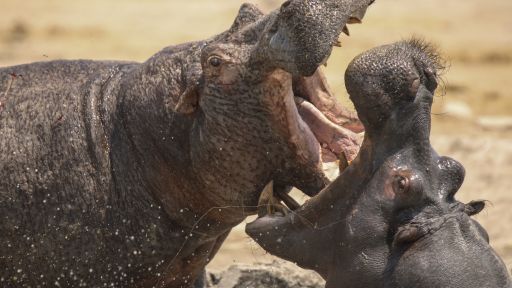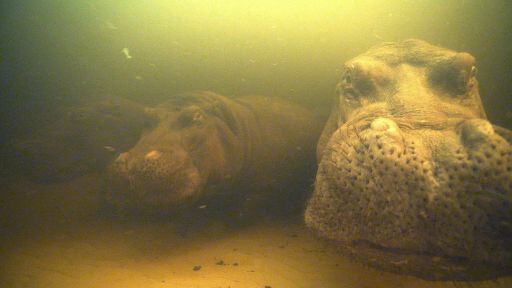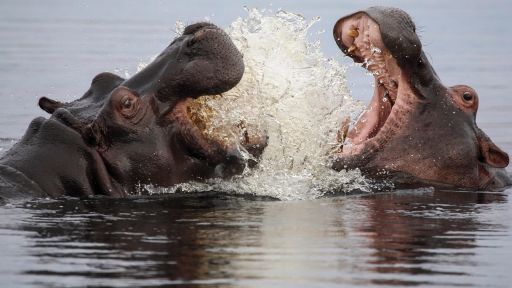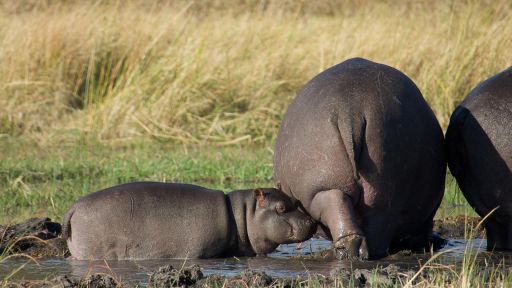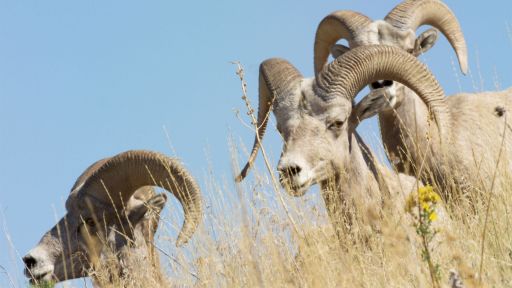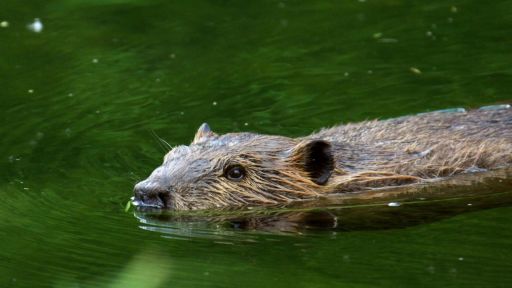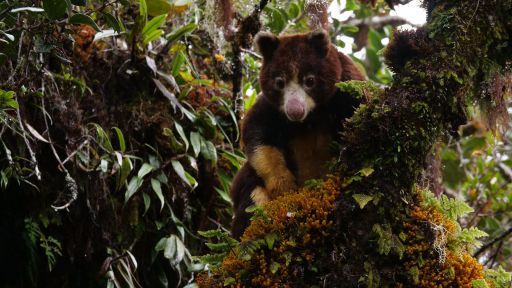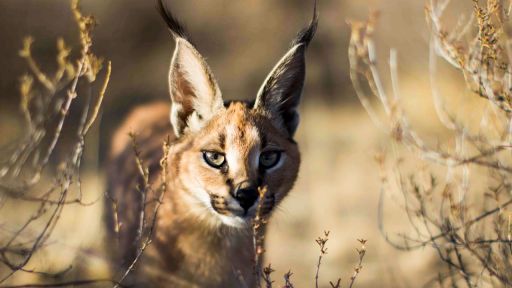The hippopotamus has long been an enigma: an aquatic mammal that cannot swim, a vegetarian that is also the most dangerous animal in Africa. All hippos are utterly dependent on water, but in Botswana hippos face an unparalleled challenge as deep floodwaters dry to dust in a matter of months. This documentary goes beneath the surface to show how hippos protect their families and face their enemies, revealing an animal that is highly sensitive and surprisingly intelligent. Narrated by David Attenborough, Nature – Hippos: Africa’s River Giants uncovers the life and true nature of the hippo as never seen before.
Noteworthy Facts:
- The dense structure of a hippo’s bones and the weight of its body make hippos unable to swim.
- Hippos can’t breathe underwater; they must hold their breath to walk along the bottom of the delta. In order to catch a breath, the hippo will push off the bottom and rise to the surface to breathe.
- Mating between hippos takes place within the shallows, where their heavy bodies are better supported. Mating can last up to 30 minutes.
- Hippos have sensitive hearing, poor eyesight and a nervous nature which all lead to their skittish and aggressive behavior.
- Pregnant hippos carry their calves for eight months. While pregnant, the female hippo will separate herself from the pod and find a quiet, shallow pool of water to give birth.
- When the Okavango Delta dries up and food is scarce, hippos regurgitate grass from their stomachs and chew it again as a source of sustenance. This leads scientists to believe they may have a ruminating digestive system like cows.
Buzzworthy Moments:
- A nomadic male hippo lurks around a dominant bull’s pool, where the bull spots the intruder and gets defensive of his pod. The dominant bull approaches the intruder and they begin gaping at each other until the bull defeats and chases the intruder away, leaving him with gruesome wounds.
- Once a calf is several weeks old, the mother will bring it back to the pod to get it acquainted with the rest of the family. Returning to a pod with a new baby is risky, and once the mother gets past the dominant bull, her previous calf shows up wanting to check out her mother’s newest baby. The jealous older sibling starts pushing the baby around, causing the mother hippo to get aggressive and gape at her older calf until she runs off.
- The nomadic hippo dies from his injuries. As crocodiles begin to feast on the hippo carcass, the dominant bull chases them away and inspects it. When night falls, hyenas drag the body to shore and begin to tear it apart. The crocodiles return for the carcass and stand off against the hyenas for access. The hippo pod hears the noise and scares everyone away from the corpse.

